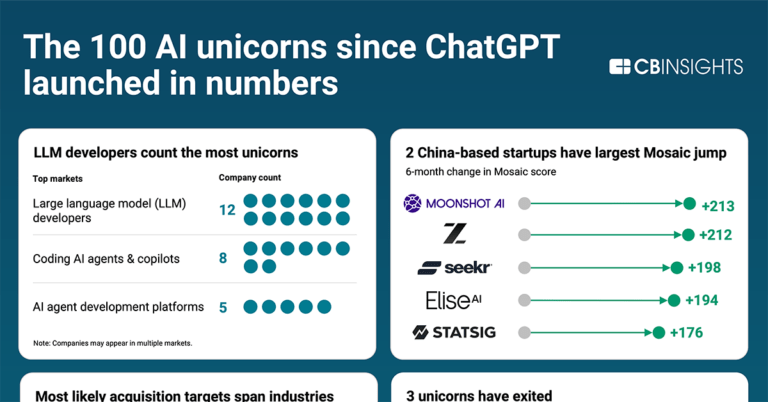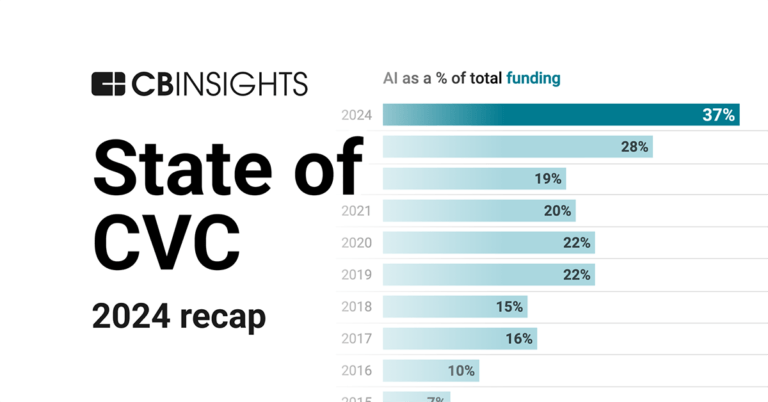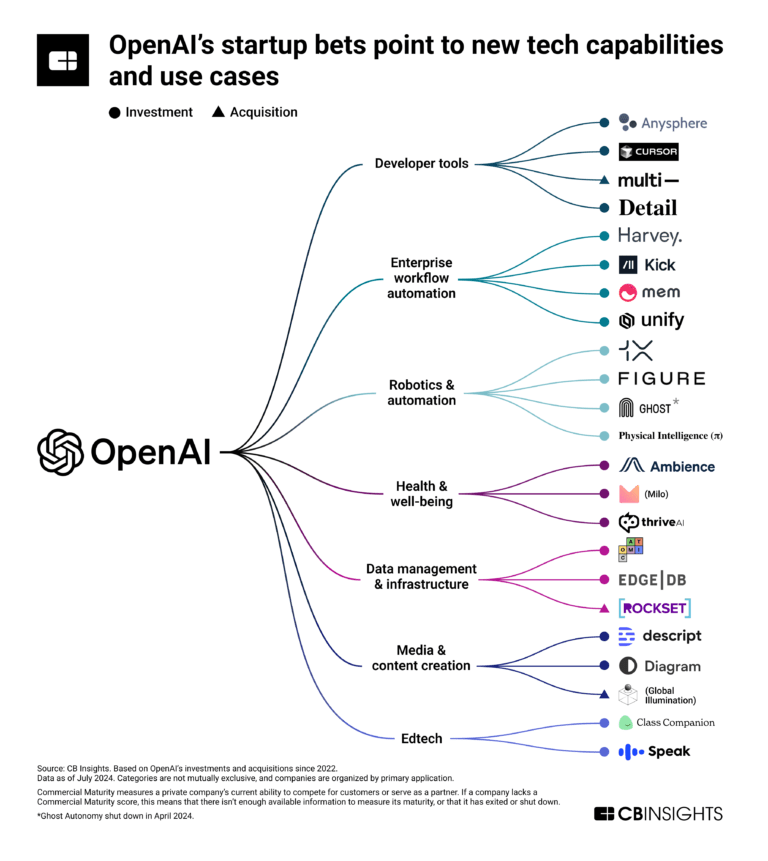
Physical Intelligence
Founded Year
2024Stage
Series A | AliveTotal Raised
$470MValuation
$0000Last Raised
$400M | 1 yr agoMosaic Score The Mosaic Score is an algorithm that measures the overall financial health and market potential of private companies.
+32 points in the past 30 days
About Physical Intelligence
Physical Intelligence works on the integration of general-purpose artificial intelligence into the physical world, with a focus on the robotics sector. The company develops foundation models and learning algorithms that allow robots and physically-actuated devices to perform complex tasks. The technology is aimed at improving the functionality of robots and devices using AI. It was founded in 2024 and is based in San Francisco, California.
Loading...
Loading...
Research containing Physical Intelligence
Get data-driven expert analysis from the CB Insights Intelligence Unit.
CB Insights Intelligence Analysts have mentioned Physical Intelligence in 3 CB Insights research briefs, most recently on Aug 26, 2025.

Aug 26, 2025 report
All 100 AI unicorns since ChatGPT launched
Feb 4, 2025 report
State of CVC 2024 ReportExpert Collections containing Physical Intelligence
Expert Collections are analyst-curated lists that highlight the companies you need to know in the most important technology spaces.
Physical Intelligence is included in 2 Expert Collections, including Artificial Intelligence (AI).
Artificial Intelligence (AI)
20,629 items
Unicorns- Billion Dollar Startups
1,297 items
Latest Physical Intelligence News
Nov 5, 2025
AgiBot is using AI-powered robots to do new manufacturing tasks. Smarter machines may transform physical labor in China. Comment Save this story AgiBot, a humanoid robotics company based in Shanghai, has engineered a way for two-armed robots to learn manufacturing tasks through human training and real-world practice on a factory production line. The company says its system, which combines teleoperation and reinforcement learning, is being tested on a production line belonging to Longcheer Technology, a Chinese company that manufactures smartphones, VR headsets, and other electronic gadgets. AgiBot’s project shows how more advanced AI is starting to change the abilities of industrial machines—an innovation that may creep into new areas of manufacturing in China and elsewhere. The trend may increase manufacturing productivity and could allow products to be made with fewer low-wage human workers. This might lead to some jobs disappearing, but new ones being created. Robots are widely used in factories for chores like lifting boxes and moving bins. But the work involved in assembling, say, an iPhone requires dexterity, deft sensing, and adaptation—things that robots generally lack. While AI is increasingly used to help robots do things like spot items moving along conveyor belts and decide how to grasp them, it is not yet a reliable tool for training them to do complex manipulation. AgiBot G2 in action on the validation line after RL. Courtesy of AgiBot AgiBot representative Yuheng Feng says the robot deployed at the Longcheer plant takes components from a machine that performs testing, then places them onto a production line—the kind of task robots can handle because it does not involve fine manipulation or working with bendable or fragile parts. The real question is how effectively AgiBot’s algorithms can teach its robots new tricks. Using reinforcement learning to teach a robot tasks that require improvisation generally requires a lot of training data, and studies show it cannot be perfected entirely inside a simulation. AgiBot speeds up the learning process by having a human worker guide the robot through a task, which provides a foundation for it to then learn by itself. Before cofounding AgiBot, chief scientist Jianlan Luo did cutting-edge research at UC Berkeley, including a project that involved robots acquiring skills through reinforcement learning with a human in the loop. That system was shown doing tasks including placing components on a motherboard. Feng says that AgiBot’s learning software, called Real-World Reinforcement Learning, only needs about ten minutes to train a robot to do a new task. Rapid learning is important because production lines often change from one week to the next, or even during the same production run, and robots that can master a new step quickly can adapt alongside human workers. Training robots this way requires a lot of human effort. AgiBot has a robotic learning center where it pays people to teleoperate robots to help AI models learn new skills. Demand for this kind of robot training data is growing, with some US companies paying workers in places like India to do manual work that serves as training data. Jeff Schneider, a roboticist at Carnegie Mellon University who works on reinforcement learning, says that AgiBot is using cutting-edge techniques, and should be able to automate tasks with high reliability. Schneider adds that other robotics companies are likely dabbling with using reinforcement learning for manufacturing tasks. AgiBot is something of a rising star within China, where interest in combining AI and robotics is soaring. The company is developing AI models for various kinds of robots, including humanoids that walk around and robot arms that stay rooted in one place. Close-up of AgiBot G2 nailing a precision task post-training. Courtesy of AgiBot AgiBot’s AI-powered learning loop is precisely the kind of technology that US companies may need to master if they hope to reshore more manufacturing. A number of US startups are currently honing algorithms for new kinds of robo learning. These include Physical Intelligence , a heavily backed startup cofounded by some of the researchers who worked on the same project as Luo at UC Berkeley, and Skild , a spinout of Carnegie Mellon University that recently showed off robotic algorithms capable of adapting to new physical forms, including legged systems and robot arms. China’s huge manufacturing base is likely to give startups there some key advantages. These include a supply chain capable of prototyping rapidly and producing robots on a massive scale, a ready market for robot labor, and workers to help train robotic models. There are already more industrial robots operating in China than in every other country combined, according to the International Federation of Robotics, an industry body. The Chinese government’s latest five-year-plan , released in September, also calls for more technologically driven economic growth with a focus on AI and robotics, something that is likely to spur further investment and government initiatives aimed at growing more advanced robots. One US-based robotics entrepreneur told me recently that he is not especially worried about US rivals—but Chinese robotics firms keep him up at night.
Physical Intelligence Frequently Asked Questions (FAQ)
When was Physical Intelligence founded?
Physical Intelligence was founded in 2024.
Where is Physical Intelligence's headquarters?
Physical Intelligence's headquarters is located at 396 Treat Avenue, San Francisco.
What is Physical Intelligence's latest funding round?
Physical Intelligence's latest funding round is Series A.
How much did Physical Intelligence raise?
Physical Intelligence raised a total of $470M.
Who are the investors of Physical Intelligence?
Investors of Physical Intelligence include Khosla Ventures, OpenAI Startup Fund, Lux Capital, Sequoia Capital, Thrive Capital and 11 more.
Who are Physical Intelligence's competitors?
Competitors of Physical Intelligence include Nnaisense and 5 more.
Loading...
Compare Physical Intelligence to Competitors

Cognitive Engines offers artificial intelligence technology for industrial robotics and healthcare sectors. The company provides AI algorithms. It enables industrial robots to interact with human operators, support physical tasks, and integrate non-digital staff into production processes. It was founded in 2019 and is based in Cestas, France.

Google DeepMind operates as an artificial intelligence (AI) research company focused on AI across various sectors. The company develops generative AI models for creating images, music, and videos, and conducts research in health, climate, and quantum computing. Google DeepMind was formerly known as DeepMind. It was founded in 2010 and is based in London, United Kingdom. In January 2014, Google DeepMind was acquired by Google at a valuation between $500M and $650M.
Artificialy specializes in the development of artificial intelligence solutions for various sectors. The company offers a range of services, including industrial machine and process optimization, predictive maintenance, customer relationship management, strategic marketing analytics, computer vision, advanced image analysis, text-to-knowledge transformation, and natural language processing chatbots. Its AI solutions aim to support operational tasks and customer service without requiring specialized technical knowledge from the end-user. It was founded in 2020 and is based in Lugano, Switzerland.

Landing AI offers a software platform providing visual prompting for a range of applications. Its product includes an end-to-end artificial intelligence (AI) platform specifically designed for industrial customers to build and deploy AI visual inspection solutions. The company was founded in 2017 and is based in Mountain View, California.

SLAMcore specializes in spatial intelligence and operates in the technology sector. It focuses on real-time location systems (RTLS) and autonomous vehicle operation. The company offers products such as Slamcore Aware and Slamcore software development kit (SDK), which provide vision-based positioning and spatial understanding using stereo cameras, inertial sensors, and advanced artificial intelligence (AI) algorithms. Its solutions are designed for tracking and situational awareness in various environments, catering to industries that require robust vehicle and robot localization. It was founded in 2016 and is based in London, United Kingdom.
RGo Robotics specializes in artificial perception technology for mobile robots. The company's main product, the Perception Engine, provides mobile robots with the ability to understand complex surroundings and operate autonomously, similar to human perception. It primarily serves sectors such as warehouse automation, last-mile delivery, outdoor machinery, and service robots. It was founded in 2018 and is based in Cambridge, Massachusetts.
Loading...

